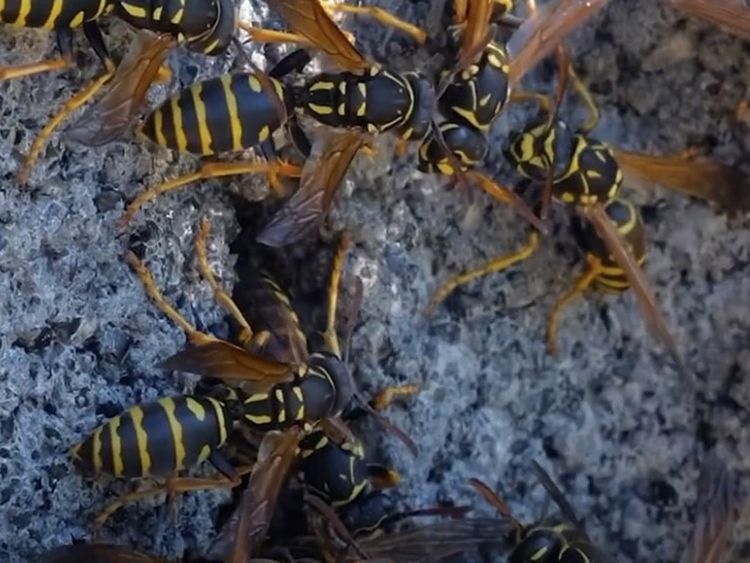EAD Discovers Eight New Invertebrate Species
Ground breaking discovery of eight previously unknown invertebrate species within the emirate of Abu Dhabi.
These remarkable findings, belonging to the family of Digger Wasps (Hymenoptera: Spheciformes: Crabronidae), were identified in four reserves: Al Wathba Wetland Reserve, Al Bida Protected Area, Barqa Saqoor Protected Area, and Houbara Protected Area.
These reserves play a crucial role in EAD’s Sheikh Zayed Network of Protected Areas, highlighting the importance of conservation efforts. Digger Wasps, characterized by their solitary nature, exhibit fascinating behaviors such as constructing nests for their young. Within these nests, female wasps strategically lay eggs on paralyzed insects, ensuring a fresh and readily available food source for the hatching larvae.
Following a period of feeding, the larvae undergo pupation and eventually emerge as fully matured adult wasps. The newfound species add to the rich biodiversity of the region, emphasizing the significance of preserving these unique ecosystems.
This remarkable discovery of this previously unknown invertebrate species was made possible through the strategic use of Malaise Traps, specialized net-like structures mounted on metal frames designed to capture flying insects.
The collected specimens are carefully sorted by EAD scientists, and in collaboration with international entomological experts, an extensive taxonomic research and publication process is initiated to formally describe and document these newly identified species.
EAD takes pride in its extensive collection of invertebrates, meticulously cataloged in an online database that will soon be accessible to scientists, naturalists, and the general public. This resource serves as a valuable tool for exploring Abu Dhabi’s invertebrate diversity and understanding the intricate ecosystems supported by these remarkable discoveries. Join us in celebrating the wonders of these newfound species and the ongoing commitment to conservation and scientific exploration in the region.





0 Comments